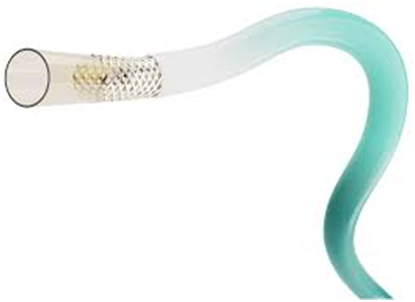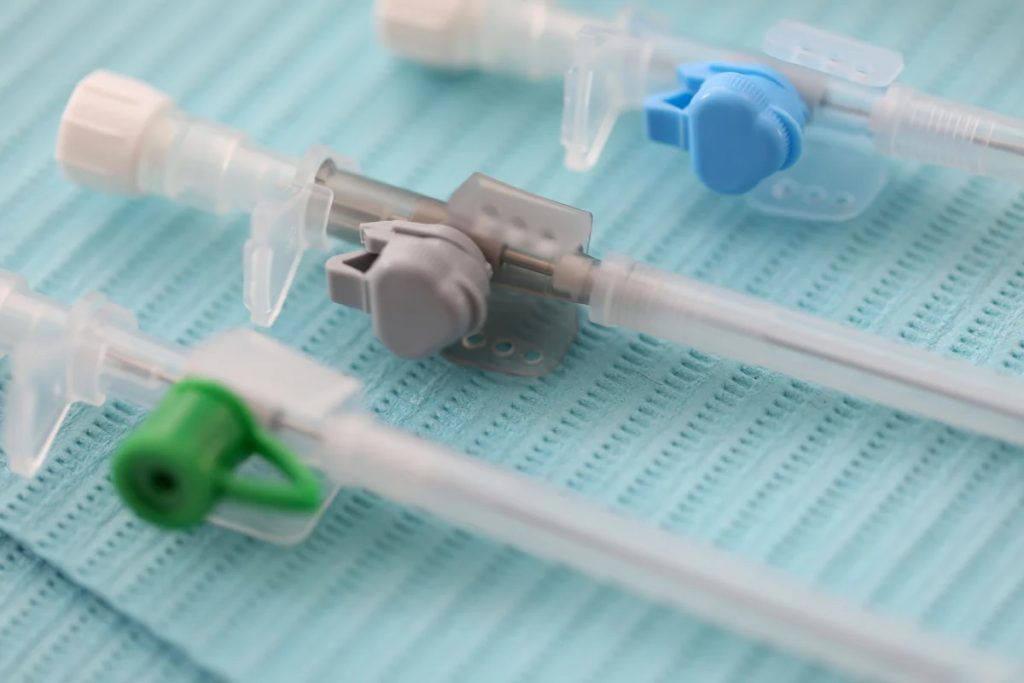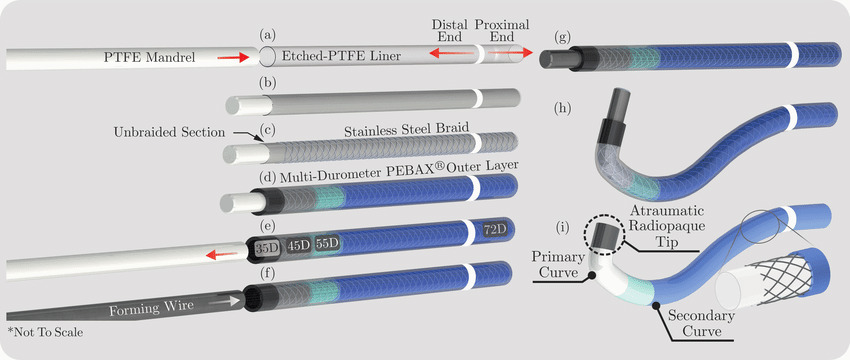The smooth and sleek PTFE is also known as polytetrafluoroethylene. This versatile material is used to make medical devices used in many different procedures.
PTFE is a popular choice as a material because of its unique properties. It is resistant to chemical reactions, has excellent biocompatibility, and provides from 0 to very low friction. It has non-sticking properties making it suitable as a coating material on different medical instruments.
The most popular of these instruments are PTFE catheters which are highly valuable in multiple medical settings.
What Are PTFE Catheters?
Imagine a medical tool that smoothly glides into your body, guiding medical practitioners to perform tests and procedures with extreme precision. The PTFE catheters are the secret ingredient of these precise medical procedures.
PTFE catheters are narrow, flexible tubes that have been coated with polytetrafluoroethylene, which is a versatile polymer. Due to their structure, these catheters can easily be inserted into tiny blood vessels, ducts, or other body cavities.
These catheters have become an essential component in modern medical practices and help in improving procedures and their results.

What is the Purpose of PTFE Catheters?
The primary purpose of these PTFE catheters in medical procedures is to provide access to specific areas within the body so that healthcare professionals can deliver fluids and medications and perform tests or therapeutic interventions.
These catheters are inserted into blood vessels, tracts, and ducts, thus offering a comfortable and precise way to administer essential substances to patients.
What Properties of PTFE Make The Catheters Suited to These Procedures?
PTFE, or Polytetrafluoroethylene, is a fluoropolymer that belongs to the fluorocarbon plastic family. It is a versatile material suited to many applications across various industries due to its unique properties.
One of the most remarkable uses of this polymer is in the medical industry, where it is used in the making of catheters.
These catheters are highly suited to different procedures for many reasons.
Biocompatibility
PTFE catheters are extremely biocompatible. This means that the body tissue tolerates them well and does not trigger any immune responses.
As a result, any risk of adverse reactions, inflammation, infection, or damage to tissue is significantly reduced.
Low Friction
PTFE creates extremely low friction, because of which these catheters glide smoothly into the blood vessels or other tracts. As a result, trauma to surrounding tissue is minimum during the insertion of this catheter, and the patient feels little to no discomfort during the procedure.
Non-Sticking
PTFE is a non-sticking material. Due to this, substances within the body, including blood, do not stick to its surface easily. This way, there is no risk of thrombosis, and blood can flow without any hindrance.
Flexibility.
PTFE catheters are highly flexible and do not kink on bending. This allows healthcare professionals to pass them through complex blood networks or structures quickly and smoothly.
Durability
The catheters are very durable, which makes them well-suited for long-term use whenever required.
Transparency
PTFE allows X-rays to pass through, making it convenient for doctors to monitor the position of these devices. Healthcare providers can view the progress of any procedure in real-time through imaging techniques with the help of these catheters.
All these features make the PTFE catheters indispensable in a wide range of medical procedures.
How Can These Catheters Help?
There are a range of benefits to using PTFE catheters, and they can help medical practitioners in many ways.
This is how they can make a difference.
Patients feel very little discomfort because of low friction and the smooth surface of these catheters. These tubes glide in and out of vessels and ducts effortlessly, reducing any risk of trauma to the tissues all around. Overall, the patient undergoes a relatively comfortable experience.
Since the catheters do not kink when bending, medical practitioners are able to explore tiny and complex systems in the body with accuracy. The PTFE catheters are super flexible and make sure that all the fluids and medications are delivered precisely where they need to go. This increases the success rate of all medical procedures.
Due to their resistance to clot formation, any blockage or complication during the procedure can be avoided.
Since the catheters are incredibly durable, they are ideal for long-term medical interventions. As a result, the need for replacement of catheters is reduced. This ensures that the medical costs are reduced considerably.
The PTFE catheters are biocompatible, reducing the risks of infection and adverse reactions. This is very helpful for patients with allergies to certain materials.
Since the PTFE catheters are compatible with all imaging techniques, accurate X-rays, CT scans, etc., can be performed. This helps medical practitioners make necessary adjustments during the procedures.
When the infection rate is reduced, there are better patient outcomes. There is shorter hospitalization and a faster rate of recovery.
What Are The Different Types of PTFE Catheters?
There are many different types of PTFE catheters available for use.
Balloon Catheters with a coating of PTFE allow for a smooth exploration during cardiac procedures such as angioplasty.
They are used in urinary tracts to drain urine from the bladder in patients with urinary issues.
Gastrointestinal procedures make the use of PTFE Catheters for endoscopy or for inserting tubes into the intestines.
PTFE catheters are used in kidney patients during dialysis to get rid of excess fluids and waste products from the blood.
Thus, different types of PTFE catheters perform a separate function during a variety of medical procedures providing comfort to patients.


Where to Find PTFE Catheters?
Speciality Medical Equipment manufacturers:
Many medical equipment manufacturers specialize in the design and production of PTFE catheters. Among these are the DTC, the Dutch Technology Catheters that specialize in designing and developing minimally intrusive devices.
DTC is a Dutch company that is a pioneer in the medical industry and has not just designed but also produced PTFE catheters using cutting-edge technology. With their advanced technology and more than 50 years of experience, they deliver these high-quality catheters for many medical applications.
Medical Supply Stores:
Most medical supply retailers or distributors have PTFE catheters available for sale. These are sold to hospitals, clinics, and medical centers, where they are used during a variety of medical procedures.
Online Medical Retailers:
Many online medical retailers deal primarily in different medical equipment and supplies. They also keep an inventory of PTFE catheters that are available for delivery.
Pharmacies:
Some pharmacies have a supply of PTFE catheters, among other supplies and devices available for sale.
It is important to source these catheters from reputable and reliable suppliers to ensure the quality of the product.
Final Word
To sum up, PTFE catheters have emerged as a game-changing device in the field of medical procedures. The remarkable properties of these devices, such as low friction, biocompatibility, and resistance to clotting, make them indispensable for healthcare practitioners across many fields.
These catheters help enhance the comfort of patients by reducing the chances of trauma and discomfort during the insertion process. Their flexibility allows smooth navigation through complex vessel systems ensuring successful procedures. The PTFE catheters are compatible with medical imaging techniques helping medical practitioners achieve perfect results.
Continuous research and innovation have made the evolution of these catheters possible. With these medical marvels at their disposal, healthcare providers are able to provide expert care and treatments to their patients with minimal discomfort or side effects.


